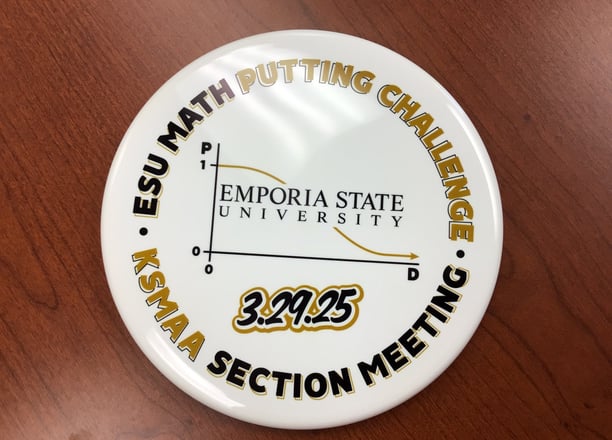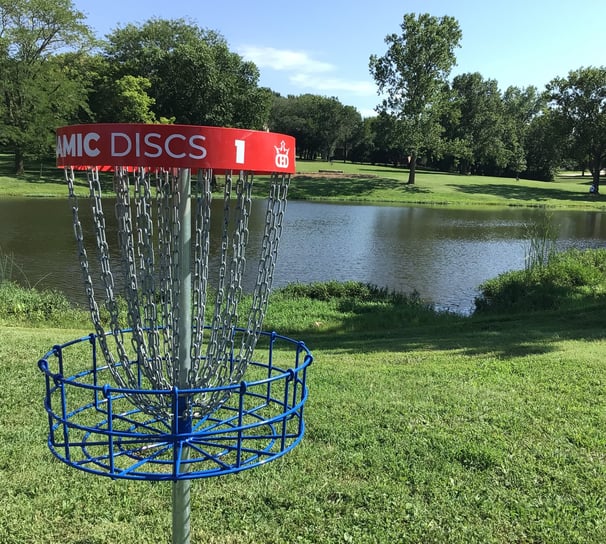ESU Disc Golf Putting Challenge
You're invited to join mathematics teachers and students from around the world this fall to work on a mathematical modeling problem together. Individuals, math classes, and math clubs are welcome to join.
We wish to explore the relationship between accuracy and distance. In Emporia, Kansas, we will analyze disc golf putting. You're welcome to join us, or analyze a different sport or game.
Watch the video for an introduction to this year's challenge.

The Question:
In March 2025, ESU Math is hosting a putting challenge and wants to devise a fair and fun event. What scoring scheme would reward players for making tough putts and reflect the difficulty of the putt?


Submodel #2:
How should the probability from Submodel #1 be converted into a score? The score should increase as the probability decreases. Any other advice about setting up the event to be fair and fun?
Generalization:
Will your models work for other sports or games? Pick another activity where accuracy from varying distances is important and collect some data. Is your model flexible enough to work for this new situation?
Submodel #1:
What is the relationship between accuracy and distance? In other words, given a distance from the target, what is the probability of success?
Next steps:


Join the collaboration by contacting the author.
Decide if your group wants to analyze disc golf putting, or another sport or game. Hopefully you can collect some data to share with the rest of us. But you can also use data already collected.
Later this fall, we will share Submodels #1 and #2 (see above) with each other.
For a tougher challenge, try to create a model that relates accuracy and distance for any sport or game.
Frequently asked questions
Who is eligible to participate?
Anyone who is interested in working on a math modeling project is welcome to join the collaboration. It will be helpful to have at least a background in high school algebra. High school and undergraduate math classes/clubs are encouraged to participate!
What is the cost?
It's free! The only cost is your time.
Do I have to be on a team or part of a class to participate?
No, anyone can participate! It's helpful to have others to help you collect data and discuss ideas, but this is not required. And you're welcome to use the data and ideas posted on this site.
Is this a competition?
No. Your work won't be judged or graded and there are no prizes for winning. This is merely a venue for us to share data and ideas to help solve the problem. However, if you are looking for a contest, you should check out: https://www.comap.com/contests.
Is there a deadline?
You are welcome to use the data posted as long as it is available on this website. However, later this fall, satisfactory models will be posted. More details about deadlines will be coming in October.
What if I have never played disc golf?
No problem! The putting challenge in March will be open to everyone, including those new to the sport. So any data you collect will be representative of new players. And we're only analyzing putting, no other aspect of the sport.
What if we don't have disc golf in my town/country?
No problem! You're welcome to use the data provided. Or even better, choose a game or sport that is of more interest in your area. Then share your data and your analysis. Your information will be helpful as we try to generalize our model.
What if I don't know anything about math modeling?
No problem! Check out the open resource textbook on this site, Tools of Mathematical Modeling. The first "toolkit" in particular will introduce you to the stages of the modeling process so you can get started on this problem.
Do I need to create an account to get started?
Nope. No account is needed. But if you want to share data and ideas, you will need to provide an email address for communication purposes.
How do I get started?
You can start now by using the resources and data provided on this site. But contact me at author@toolsofmm.org to let me know you're interested.
